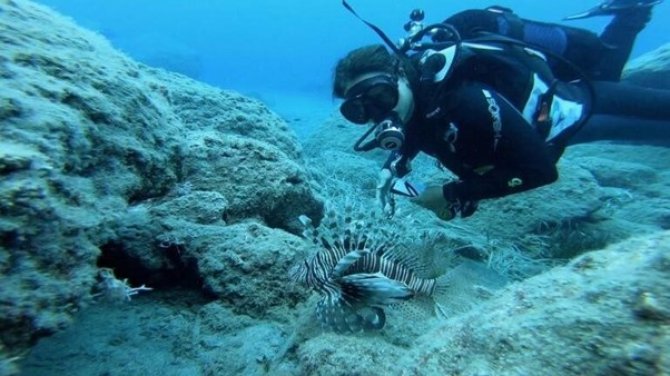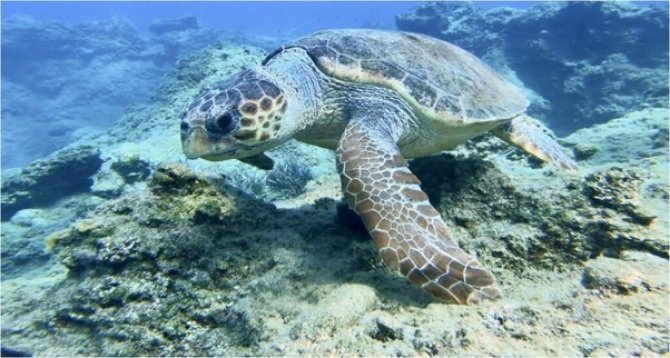
News
Diving for Science in Crete - studying invasive species and animal behaviour
A team of divers is currently working in Crete to study the invasion and predation ecology of the most invasive fish in the marine realm, lionfish.
In a series of expeditions Davide Bottacini works on his PhD project with a team of field assistants, BSc and MSc students to maintain a long-term underwater experiment aimed at measuring the impact of invasive lionfish (Pterois miles) on the Mediterranean biodiversity. They do this in remote locations on the southern coast of Crete, which they access by boat or underwater scooters.
In addition, the team catch live lionfish to keep in facilities on land where they conduct controlled behavioural experiments. These experiments are focussed on lionfish-prey interactions and aim at elucidating the hunting strategy of these fascinating predators. In all the activities, Davide and his team are collaborating with the Hellenic Centre for Marine Research, the leading institution for marine sciences in Greece.
Davide studied at WUR and started working on invasive lionfish during his master thesis, under the supervision of Alexander Kotrschal, who is also part of his supervisory team today. The more he learned about lionfish, the more he realised that many interesting questions were still unanswered. Among these are the impact that lionfish are having on the Mediterranean biodiversity and whether the local prey are adapting to this new predator. Further, although lionfish are among the most effective predators on earth, we do not fully understand
how they manage to prevent their prey from reacting to their presence. Davide has always found unresolved questions like these incredibly stimulating and is excited to study his favourite organisms, fishes, by diving in their environment.

